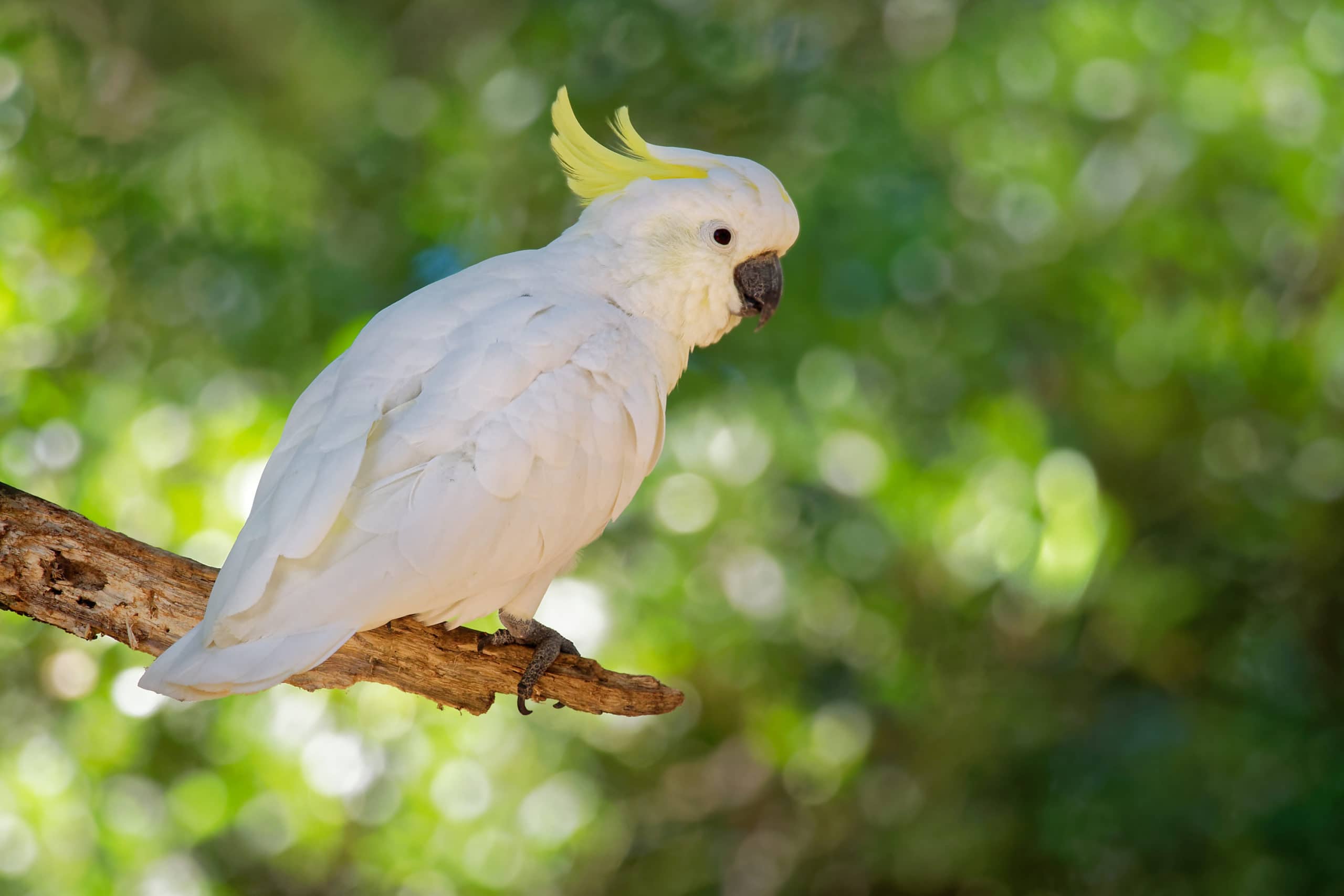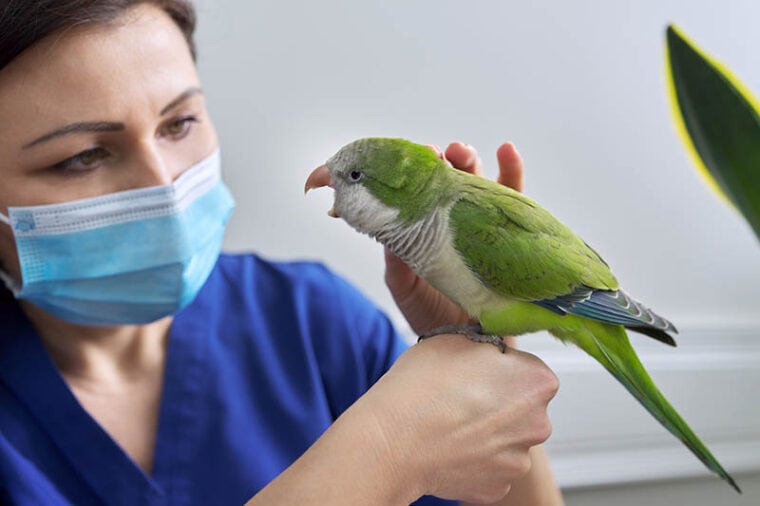
Birds are surprisingly hardy, so it can be difficult to tell if your bird is sick. Since it takes practice to identify the signs and it is easy to overlook them, many birds that come to a vet clinic arrive after they are too sick or it’s too late.
Aspergillosis demonstrates these points perfectly. It is a fungus that every bird is exposed to, but only some get sick from it. And while it can be successfully treated, it may not be effective because many birds are diagnosed too late or are too chronically malnourished.
What Is Aspergillosis?
Aspergillus is a fungal infection that mostly infects the respiratory system and airways in birds. Sometimes it can spread to other organs, but most of the time, it infects the respiratory tract, including the following:
Usually, a healthy bird will clear aspergillosis from their respiratory system. But if it does manage to catch a hold, then it sticks and grows into the organ’s wall creating a cluster of fungal growth.
This cluster gets in the way of the breath and can cause respiratory distress. It also occupies the immune system in a losing battle creating an immune deficiency that snowballs into a bigger problem.
Birds are more likely to get an aspergillosis infection if their immune system is compromised, which can happen because of a poor diet, chronic stress, or other husbandry-related problems.
What Are the Signs of Aspergillosis?
Respiratory disease in birds is an emergency. If you suspect your bird is struggling to breathe, bring them to the vet immediately. They can turn on a dime quickly and suddenly decline.
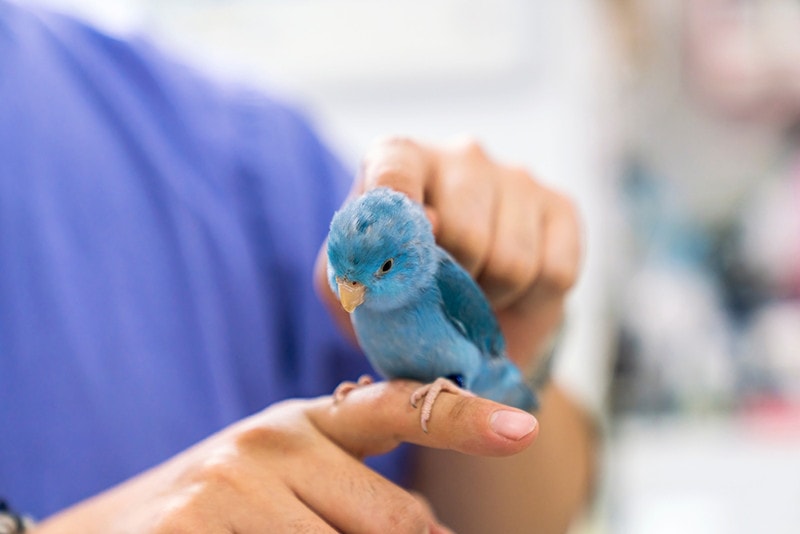
How to Tell if My Bird Is Struggling to Breathe
It can be difficult to tell if a bird is struggling to breathe because they do not respond like humans or dogs. If a bird is struggling to breathe, they do not usually open their mouths to breathe first (it’s usually one of the last things they do). Instead, they start taking bigger, deeper, faster breaths, and this makes their tails bob up and down while they are perched.
It is very difficult to see a healthy bird breathing; they do not move their chest up and down as we do. They also have a different anatomy to mammals, so when they struggle to breathe, they pump their abdomens, not their chest, which you can’t see because of all the feathers, but it does move their tail up and down.
Also, if you notice that your bird suddenly does not like to fly around as much or struggles to run along the ground, this can be a sign of respiratory disease. If they do not tolerate the same level of exercise as they used to, it can be an early sign.
What Are the Causes of Aspergillosis?
Aspergillosis is a fungal infection. It usually only occurs in birds that are immunocompromised. Many birds’ immune systems are chronically stressed as a result of their nutritionally poor diets of seeds.
Aspergillosis is present everywhere in the environment and usually does not cause a problem. Make sure your bird is always breathing fresh air, and remember these tips:
While the environment is an important factor, our homes are usually quite clean. And the bigger problem is making sure our pet birds are healthy enough to withstand mild threats to their immune system. Diet is an important tool for maintaining a healthy birdy lifestyle.
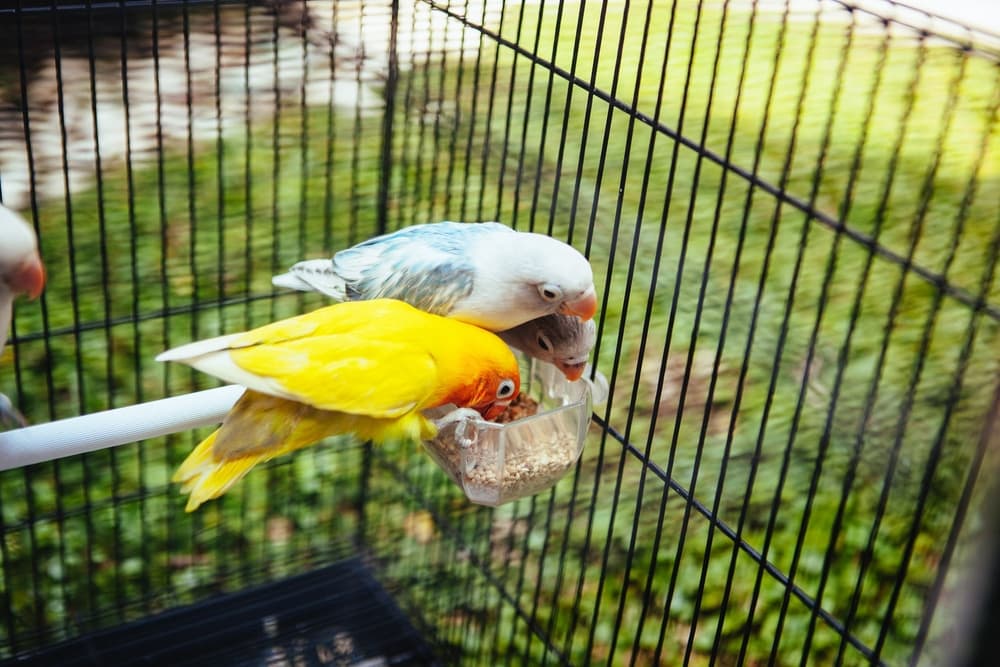
How Do I Care for a Bird With Aspergillosis?
Treatment is usually a long-term problem. It requires veterinary treatment, medication, and assessment. It also often requires lifestyle changes to address the underlying immunodeficiency, such as a change in diet.
They will need antifungal medication. This might be given to them orally. Or it can also sometimes be nebulized, so they breathe in a mist of it. They might need supportive care, including oxygen, fluids, pain relief, or nutritional support.
Endoscopic or surgical treatments might also be needed after further extensive diagnosis to identify the cluster of removable aspergilloses such as X-rays, CT scans, or MRIs.
At home, keep an infected bird from exerting itself and getting out of breath. Keep them warm, dry, and clean. And make sure they are not stressed; birds can start to hyperventilate if they are stressed.
Frequently Asked Questions (FAQs)
Is aspergillosis contagious?
It is not infectious, so it does not spread from bird to bird. But, if one bird in a flock has it, other birds might also have it because they have all been stressed by the same things that impede their immune system (i.e., they are all on the same seed diet).
It is important to keep in mind that aspergillosis can be a sign of something else being wrong. And often, these problems are environment- or diet-related. If you and your bird are both living in a poorly ventilated apartment, that is not good for anyone, regardless of the infectiousness of aspergillosis.
A healthy person will not catch aspergillosis from a bird, and it is not contagious from birds to healthy humans. However, in immunocompromised humans, an aspergillosis-infected bird will increase the amount of aspergillosis in the environment and may be a concern.
How can I prevent Aspergillus?
You will not be able to completely prevent exposure to Aspergillus. You might be able to reduce the amount of it in the environment by keeping it well-ventilated, clean, and dry. Ensure the food is not damp or spoiled and the bedding is clean.
It is also very important to focus on your bird’s overall health. Keeping your bird’s immune system healthy will be the best preventive measure.
Protecting a bird’s immune system includes doing the following:
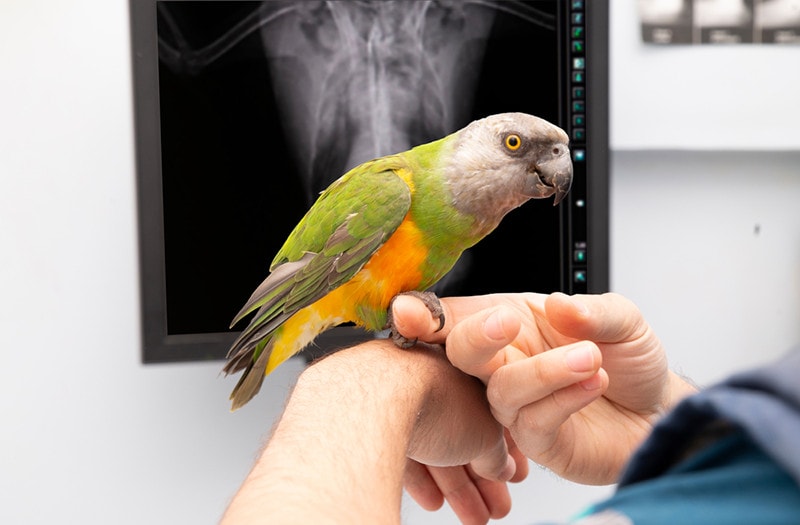
How can seeds cause aspergillosis?
All-seed diets can make a bird fat and seemingly happy, but they deprive birds of important vitamins and minerals. These deficits can lead to significant life-threatening diseases, just like vitamin C deficiency can lead to rickets in sailors. A lack of variety in a bird’s diet predisposes them to not only aspergillosis but also other diseases.
Conclusion
My conclusion is not to feed all seed diets. Every pet bird in the world would be less likely to be infected with aspergillosis if seed diets stopped being the staple default diet. Every pet bird would be happier, healthier, and have a stronger immune system.
Pet birds require a strong and healthy immune system to avoid getting a fungal respiratory infection called aspergillosis. Providing a healthy, varied diet, a clean home with good ventilation, and a stress-free, engaging lifestyle will help prevent and treat aspergillosis.
Featured Image Credit: VH-studio, Shutterstock




